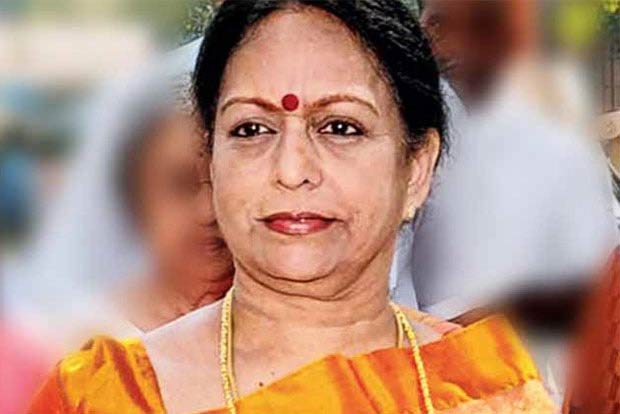Begin typing your search...
Nalini Chidambaram’s plea against ED summons dismissed
In a big blow to Nalini Chidambaram, wife of former FM MP Chidambaram, the Madras HC dismissed her plea challenging the summons issued for her personal appearance before Enforcement Directorate in Saradha Scam Case, after holding that every person summoned under Prevention of Money Laundering Act (PMLA) is duty bound to respond to summons and non-appearance will further lead to prosecution.

Chennai
Directing the ED to issue fresh summons and fix a date for continuing the investigation, Justice SM Subramaniam said, “The investigation should not be hampered at this stage. The courts cannot presume about what possible actions could be taken by the competent authorities at this stage, even before the completion of the investigation. Thus, this court is of a strong opinion that interference at this stage to the case on hand, is certainly unwarranted.”
On September 7, 2016, ED had issued summons to Nalini over her receipt of Rs 1 crore as legal fee from promoters of Saradha Group. Assailing the summons, Nalini approached the high court submitting that the summons was illegal, since as per Section 160 of Code of Civil Procedure, a woman cannot be summoned, and the inquiry should be held only at her residence.
However, observing that the petitioner cannot seek absolute exemption for personal appearance in the investigation process, Justice Subramaniam said, “The writ petitioner, being a senior advocate and having a lucrative practice in various high courts and the Supreme Court, cannot say that she is not capable of personally appearing before the authorities concerned for the purpose of investigation.” “More-so, this court expects that the senior advocate, like the writ petitioner, should not shy away from co-operating for an effective investigation of such offences committed under the provisions of ‘PMLA’, the judge said, adding, the magnitude of the alleged money laundering in the present case is running to several thousand crores of rupees and therefore, it is required for the persons like the writ petitioner, to co-operate and participate in the investigation process, for effective prosecution of cases.
Further, on observing that a mere statement made in an affidavit that the authorities are having certain personal motive or mala fide intention can never be accepted for the purpose of granting relief, the judge held, “The petitioner has not substantiated the allegation of mala fides, except by stating that the writ petitioner was directed to appear before the investigating authorities on a Friday, so that they have an idea to arrest the writ petitioner. Such apprehensions can never be entertained in a writ petition under the given circumstances.”
The Judge further held, “If there is sufficient material to proceed against the writ petitioner and if the investigating authorities have enough evidence to proceed against a person in a manner known to law and adhering to the provisions of law, then they are duty bound to do so as the law so warrants.”
Visit news.dtnext.in to explore our interactive epaper!
Download the DT Next app for more exciting features!
Click here for iOS
Click here for Android
Next Story



